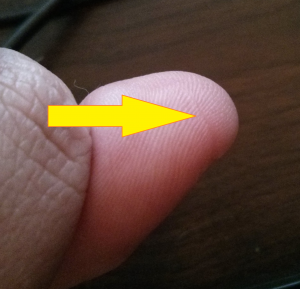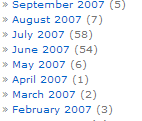This is part 3 of my Love/Hate Relationship with Video Games series. If you haven’t already, I suggest you read Part 1 and Part 2 first, so we’re all on the same page. Don’t worry, this article isn’t going anywhere. Probably.
As I’ve mentioned before, I’ve liked video games for as long as I can remember. Since the first time I was able to operate a joystick to make the character on the screen do what I wanted was magical. From then on, I wanted to experience more. I wanted to explore these virtual worlds and experience as many of these virtual stories as I could. I also wanted to absorb every shred of ancillary information I could find about the games I loved, canon or not. My passion for video games was so intense that even after I cut my left thumb on a jigsaw in shop class (in the Summer of 1992), I spent the next couple of weeks playing through Super Castlevania IV in spite of the agony, which left me with a pretty nice scar as a trophy.

Cutting my thumb open on a jigsaw is not enough to keep me from Super Castlevania IV
This helped me out in a few different ways. We moved around a lot when I was younger, and by the time I graduated high school, I had gone to seven different schools. That meant that I was the new guy. A lot. And, as the new guy, I would usually hang out in the back of the class until I could find another kid who liked video games, and then try to make something happen. That mostly worked (not counting that one guy who decided to surreptitiously show me his wiener in the middle of math class (that actually happened)). But being a video game geek through the 1980s and 1990s was tough. I got a lot of grief from people because I might bring a copy of Nintendo Power to read before class started, or I might write a poem about a controller, or someone might start talking to me in shop class out of sheer boredom and make stuff up about games just to see how gullible I was (“Dude, you can totally shoot the dog in Duck Hunt and get a million points!” “If you go over the top of the screen in World 1-4 of Super Mario Bros., like, up by the score, you can totally skip straight to the end.” And so on), or because the other video game geek and I would talk quiz each other about some new game during homeroom, or any number of things. The point is, liking video games was still weird, and if you liked games, you were weird, and if you were weird, chances are, you got bullied.
Now, I don’t tell you all of this for your sympathy (not because I think I’m better than that). But I do think that it’s important to know where I’m coming from so that I can better paint a picture of where I’m going. I could talk about problems I had in my childhood all day, but most of that has nothing to do with video games, and isn’t really on the table today. That’s a part of my life that is behind me that I’ve dealt with and moved on from.
Once I graduated from the public school system and entered college where I didn’t have to deal with bullies and people who just didn’t like me for whatever reason, my whole worldview changed. As long as my work got done, I was free to like whatever geeky thing I wanted to, and nobody cared. I was even able to keep in contact with the few people I knew from public school that also liked video games. We could talk to each other at length (via X-Mail or AIM, or even on the telephone) about the latest and greatest games.
And it was great.
Around this time, I also discovered that LAN Parties were a thing, a place where I could get together with a few dozen people who were just like me (more or less), and we could play games, talk about games, and generally do whatever geeky thing we wanted to for two days or so and nobody cared.
And it was great.
I also started hanging out on my Friday and Saturday nights at one (or more) of the local arcades (back when those were a thing), making friends with all of the other people who hung out at arcades. We played arcade games and Lazer Tag, sometimes all night long, and nobody cared.
And it was great.
All of these things were great because it wasn’t just me experiencing them on my own. We had a community where we could share experiences with the games we were playing together, games we played on our own, and games we were looking forward to.
In short, we socialized. We shared our experiences and enhanced our enjoyment of whatever games we happened to play, and maybe convinced other people who had similar tastes to try out something that they otherwise might not have looked twice at.
But, some things started to happen all about the same time. Home consoles achieved graphical fidelity that matched or exceeded arcade games, and, with the enhanced penetration of broadband, you could find your favorite competitive game and play against an actual person somewhere in the world any time, day or night, from the comfort of your own house. Rendering the big selling points to going to an arcade in the first place moot, and arcades began their slow decline into irrelevance.
Computer games migrated to an increasingly-interconnected model where you either had to be online to play them at all or maybe just for multiplayer. But, again, with current penetration of broadband being what it is, you can find someone somewhere in the world that will play whatever game with you, any time, day or night. You can even buy, download, install, and play through a game without ever interacting with another actual human. It’s great!
Erm, sort of.
Don’t get me wrong. Video games are great. But it’s also great to be able to discuss them with someone. This applies to just about every form of entertainment, too. Saw a great movie? You want to tell someone about it. Read a great book? You want to tell someone about it. Heard a great new song? You want to tell someone about it.
But I’m at a point in my video-game-playing life where my video game tastes have diverged from the tastes of most of my remaining video-game-playing friends. Since the types of games we play don’t overlap much, we don’t usually have much to discuss. Secondly, I do a lot of my gaming alone, mostly due to the fact that I currently live alone, and, since a lot of my friends have gotten married and had kids while I haven’t, means, a lot of the time, we have even less to discuss. So, even on the off-chance that one of my friends is playing a game that we would both be interested in, they usually opt to play it with their significant other or their child, which is perfectly understandable, but that also means that if we want to play through something that I will end up either being the third wheel, or one of us will have already completed a portion of the game and want to speed through the parts that the other hasn’t already played through.
All of that is a long way of saying that: when I’m playing something new, I usually don’t have anyone around that I can share the experience with.
I think that’s why my backlog is so large. I still see and buy games that I want to play as often as I ever did, but without someone or a group of someones to share the experience with, my motivation to actually play through them has all but evaporated. I’ve taken a few steps to work around that with this very website (and a few others) along with the ‘Basscomm and (someone) play (something)‘ series over on Youtube. Which is a great start, but I need to keep moving. I need to keep sharing, keep participating, and keep my sense of wonder and, above all, keep having fun. I don’t need to force myself to play more games and just kind of hope that I’ll get over whatever it is that’s keeping me from making a dent in my backlog (that never works). I don’t need to chase and devour the flavor-of-the-week game as soon as it comes out. I don’t need to comb through mountains of news that isn’t really news and discuss every non-article to death. I don’t need to spend all my time reminiscing about how good things were during bygone days (even though they sometimes weren’t all that good). I need to figure out what it is that’s holding me back, realize that the way I used to do things may not work anymore, and figure out what I need to do to change what doesn’t really work into what does work. Video games have evolved significantly in the last 30 years, and there’s no reason that I can’t make some changes and meet them halfway.
I think I can manage that.

